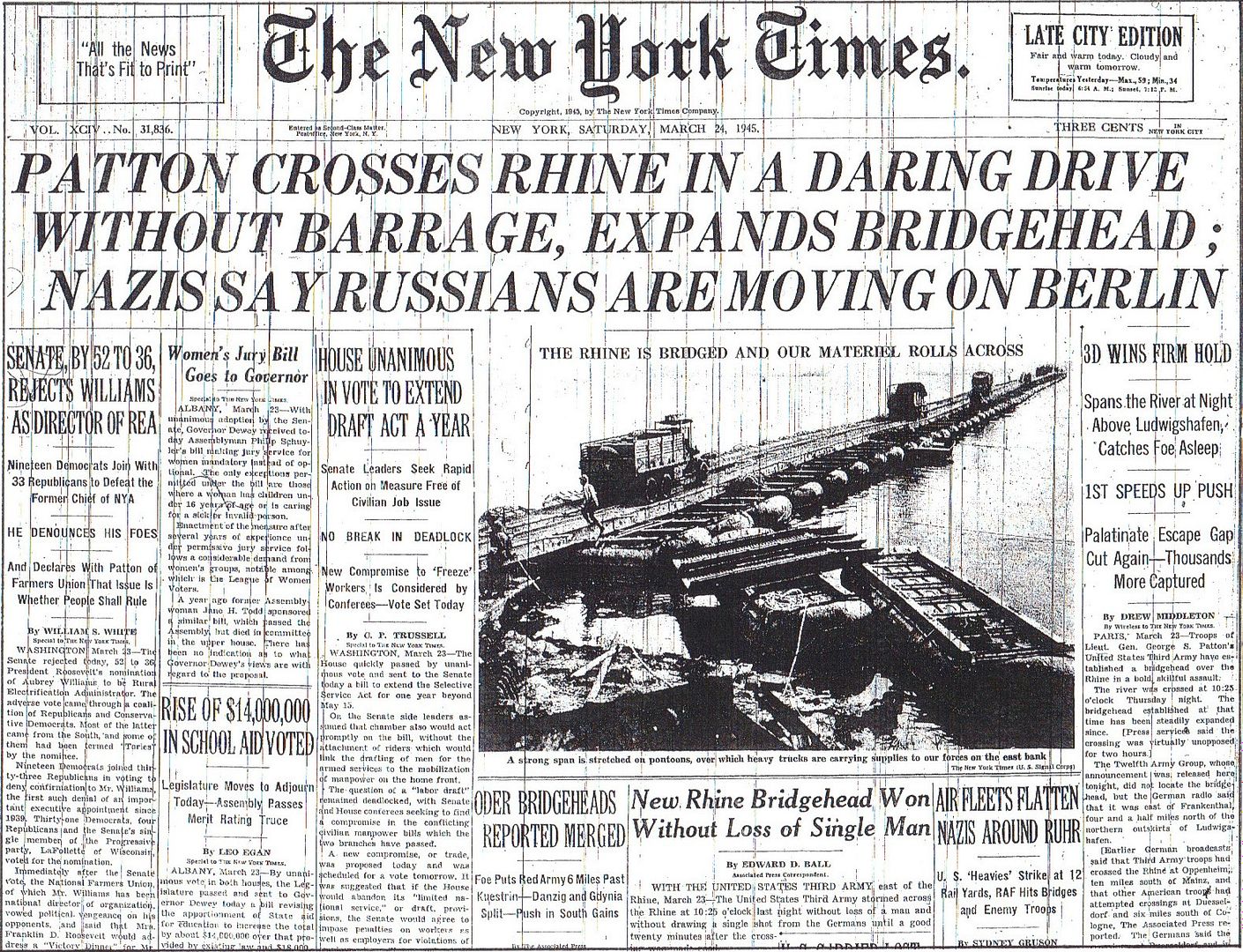
Posted on 03/24/2015 4:18:23 AM PDT by Homer_J_Simpson

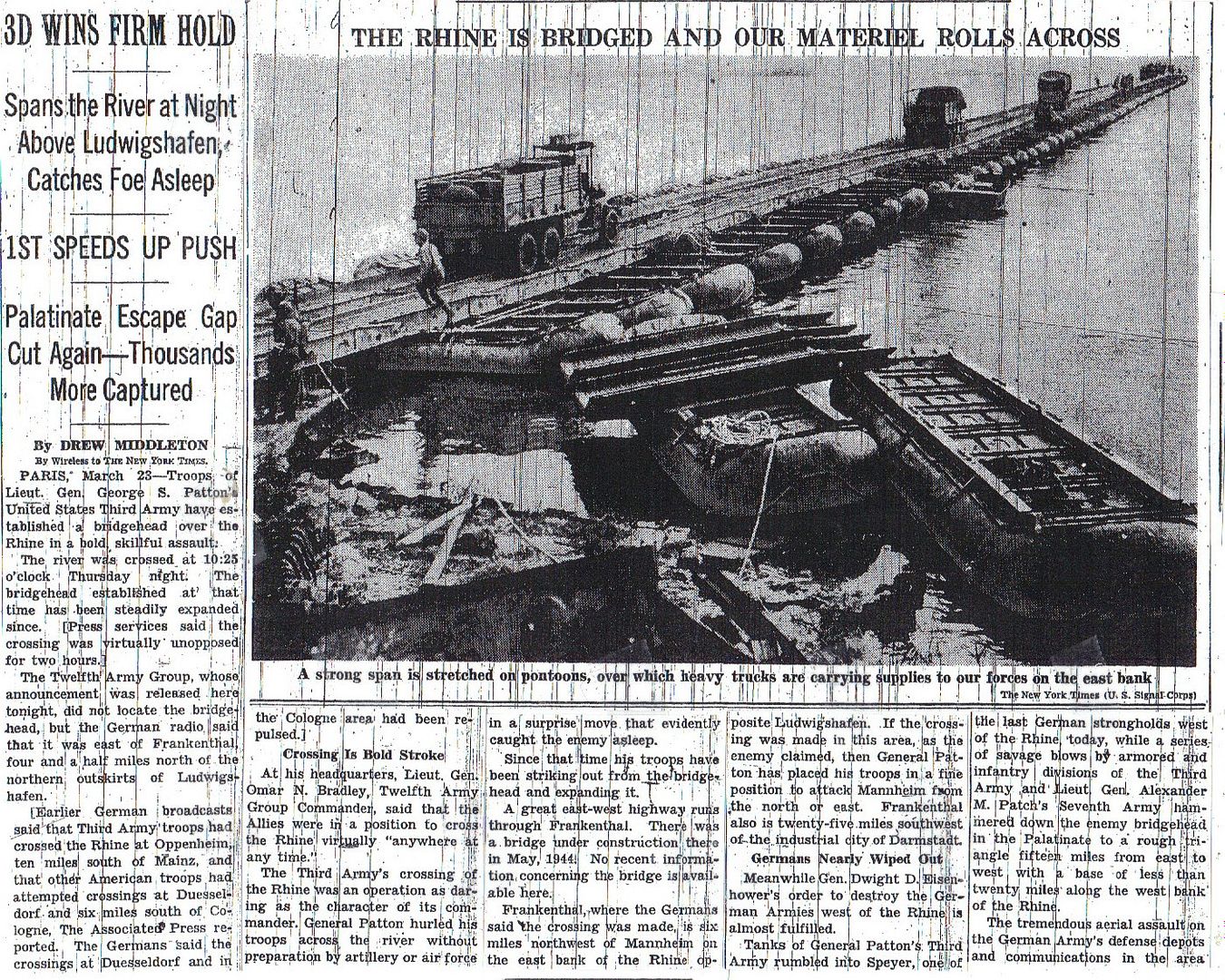
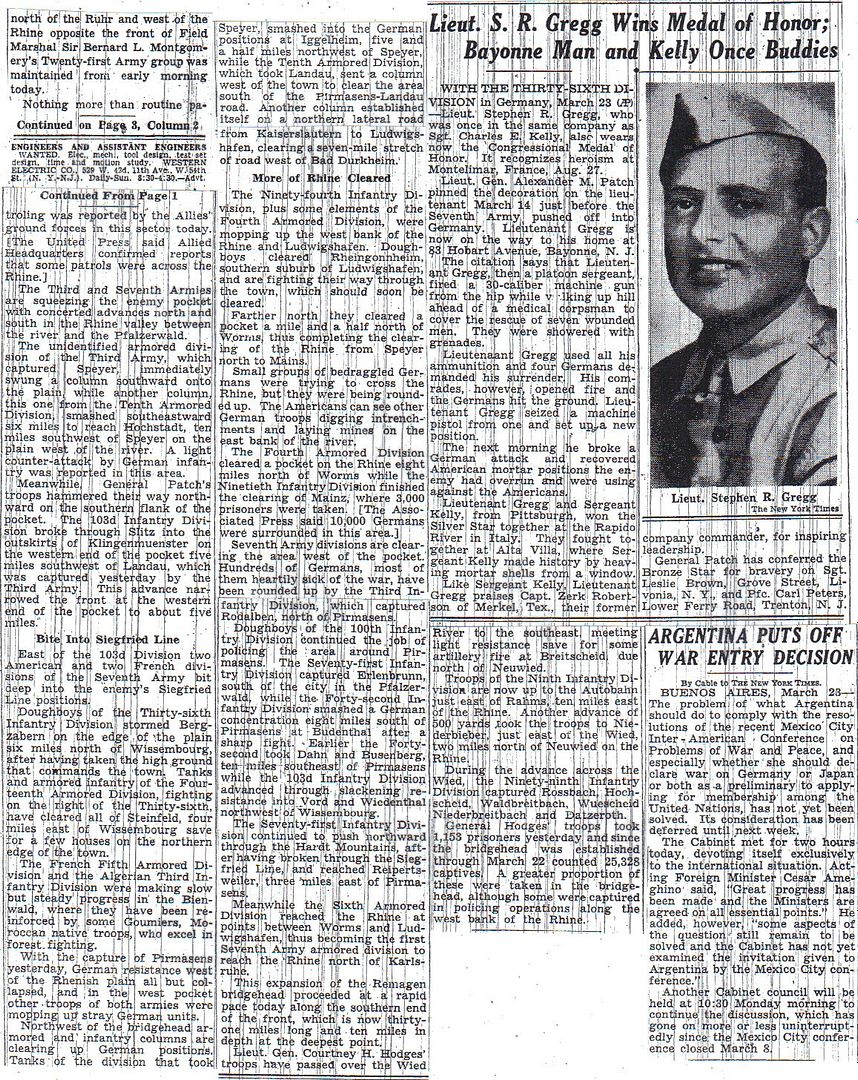
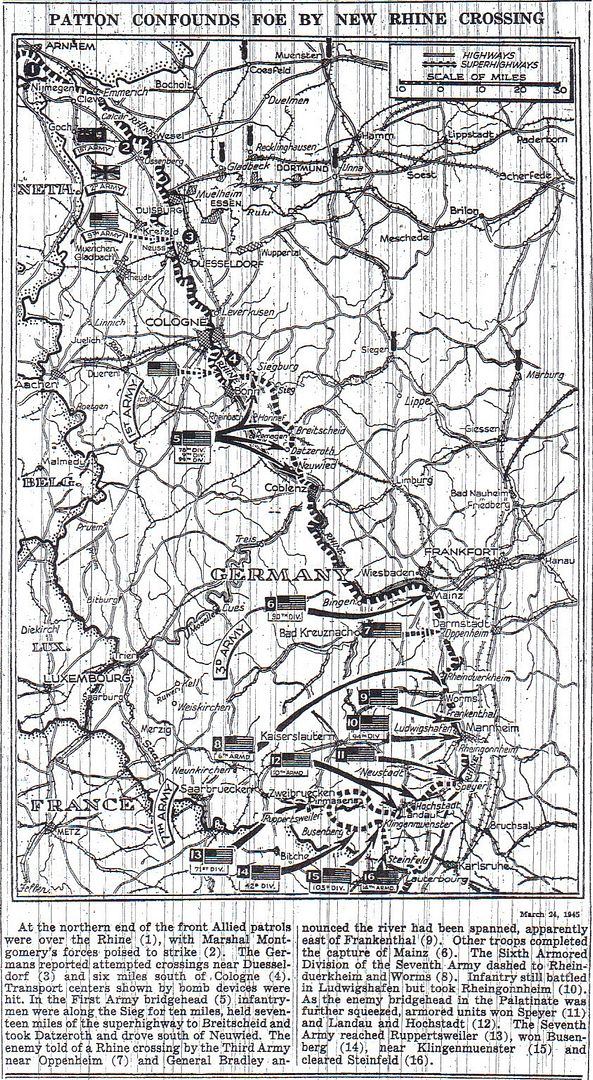
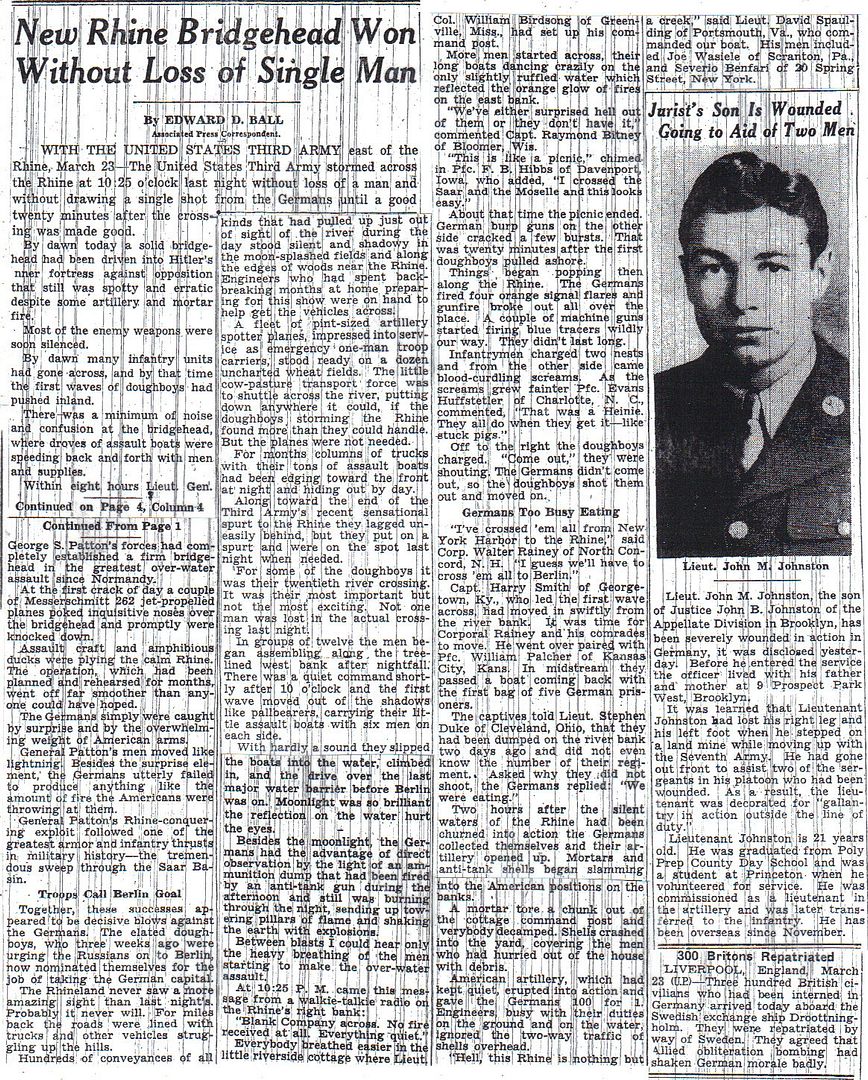
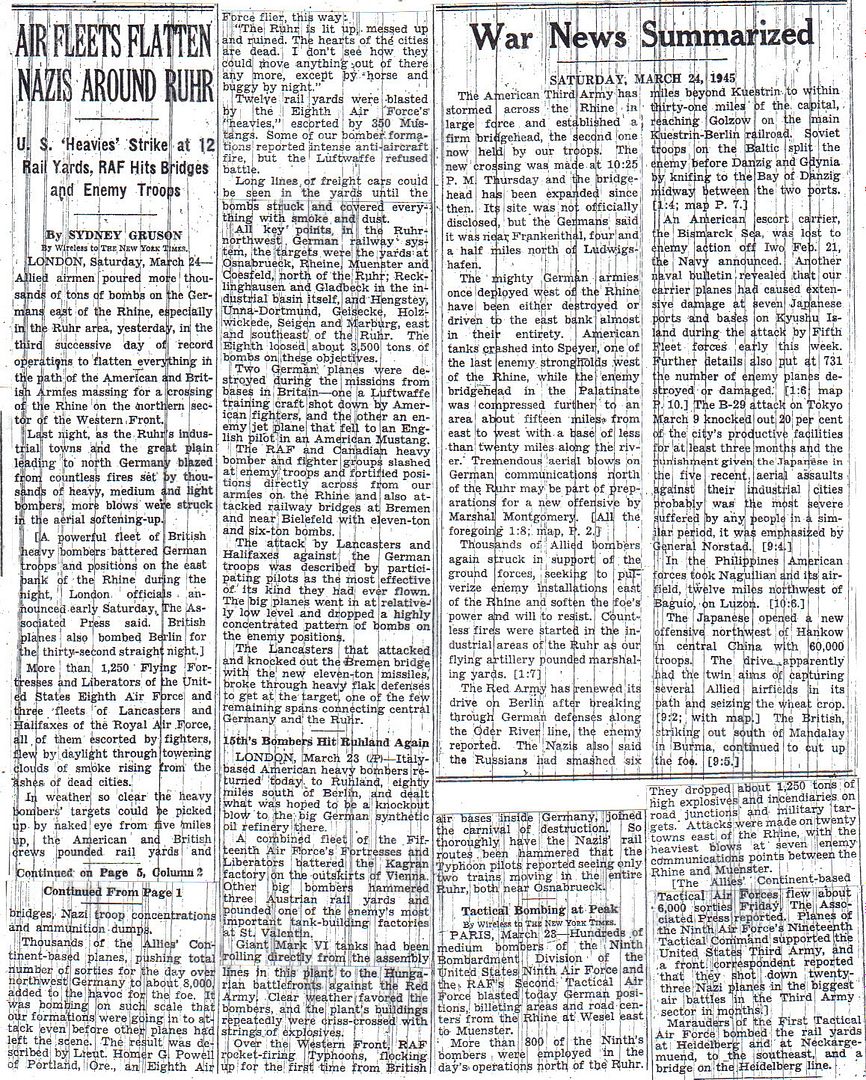
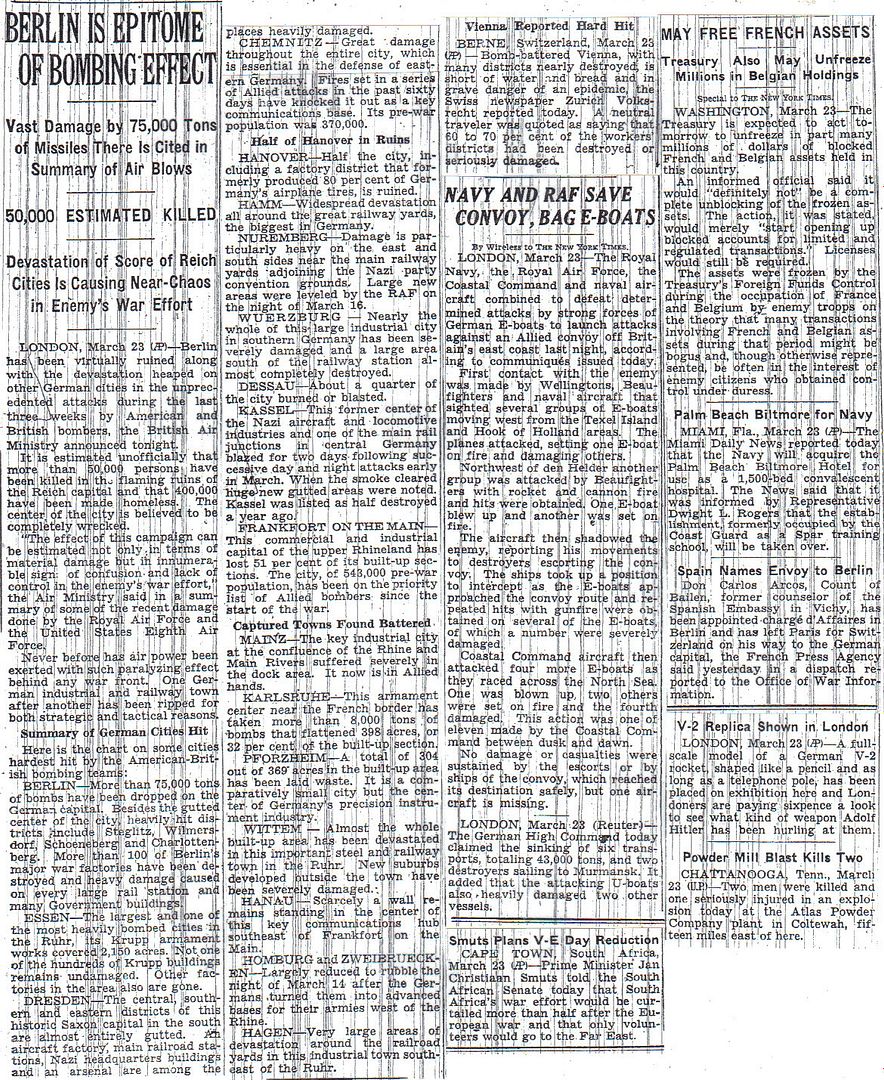
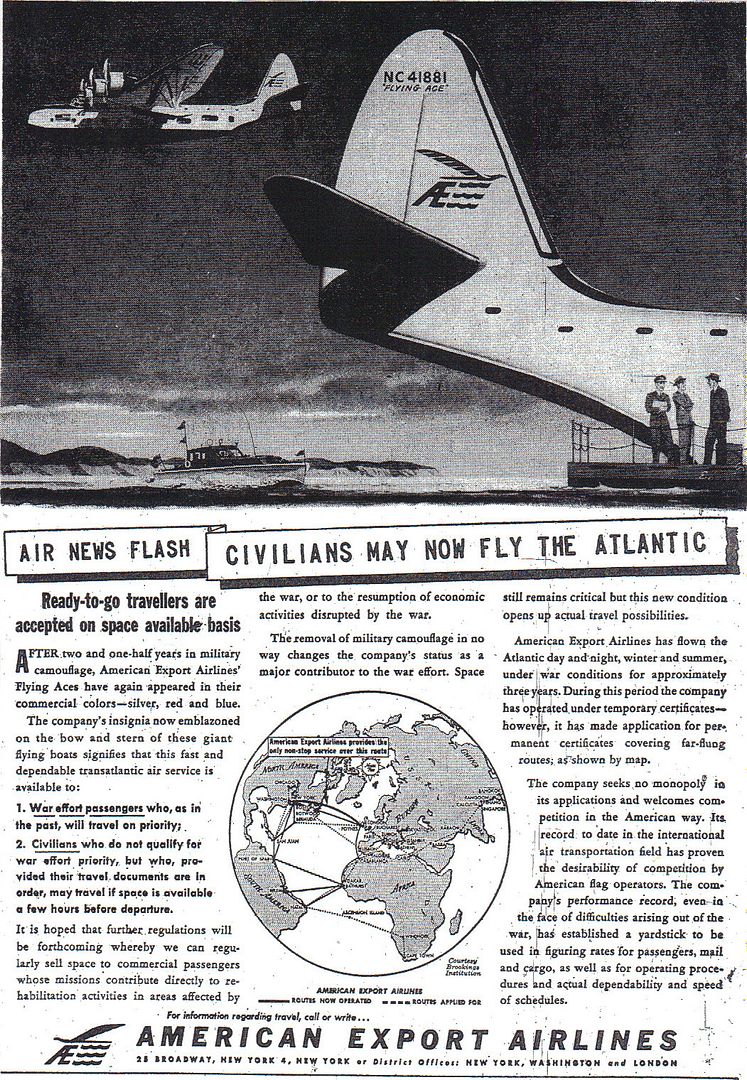
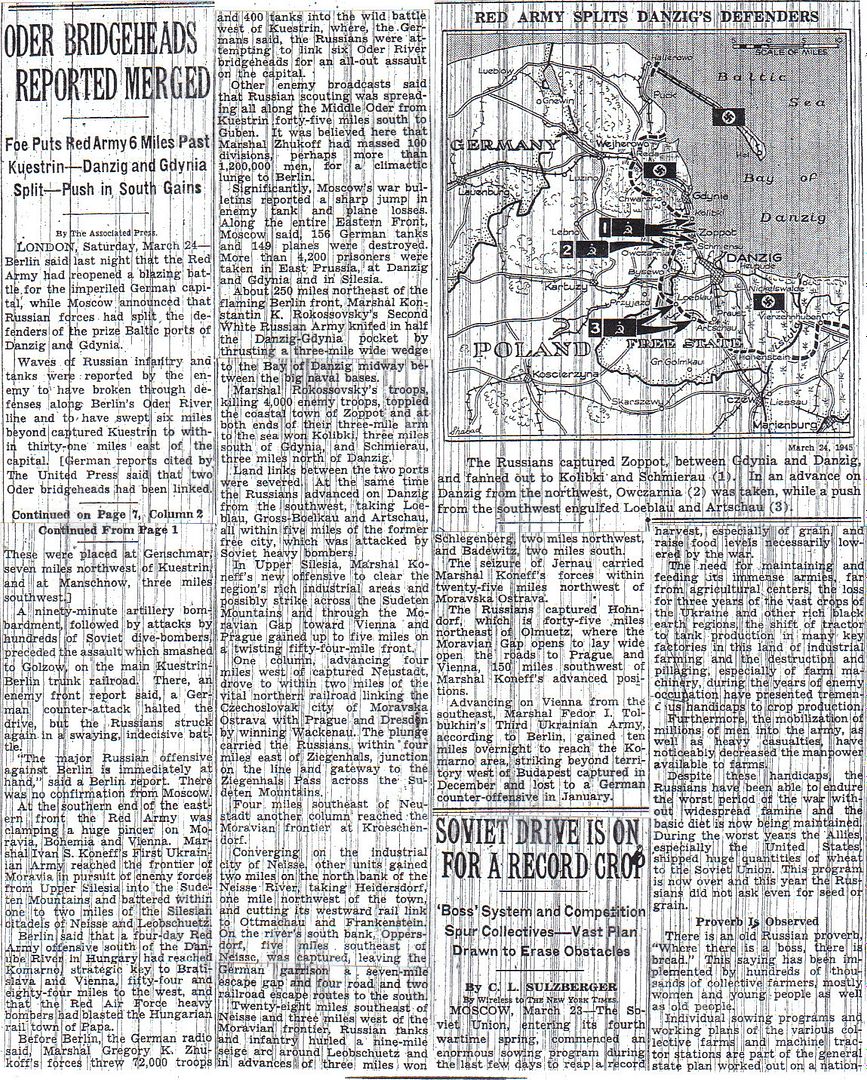
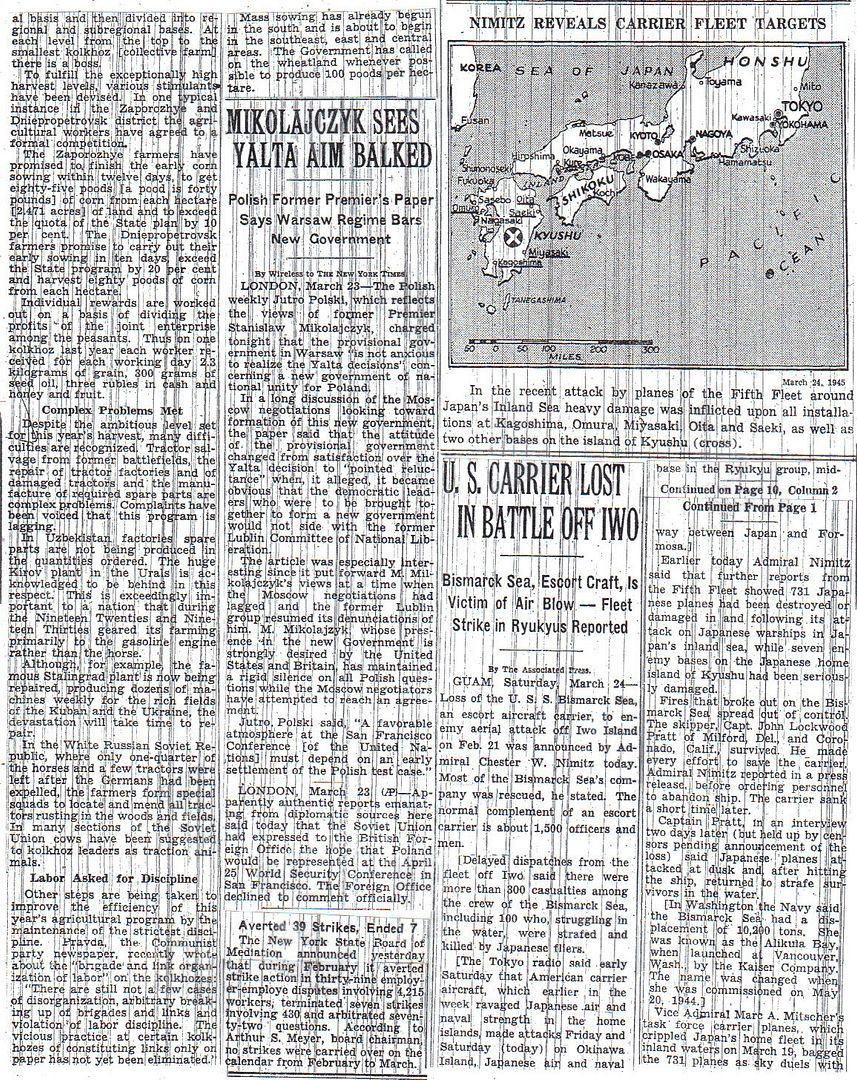
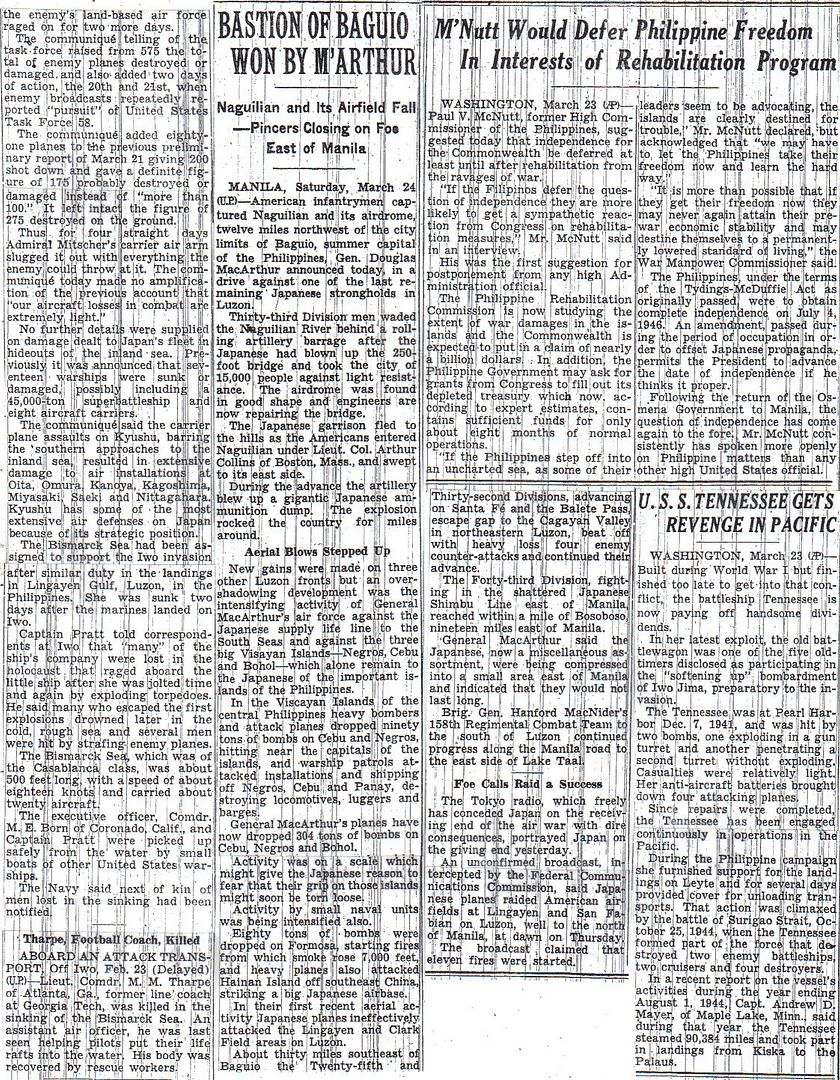
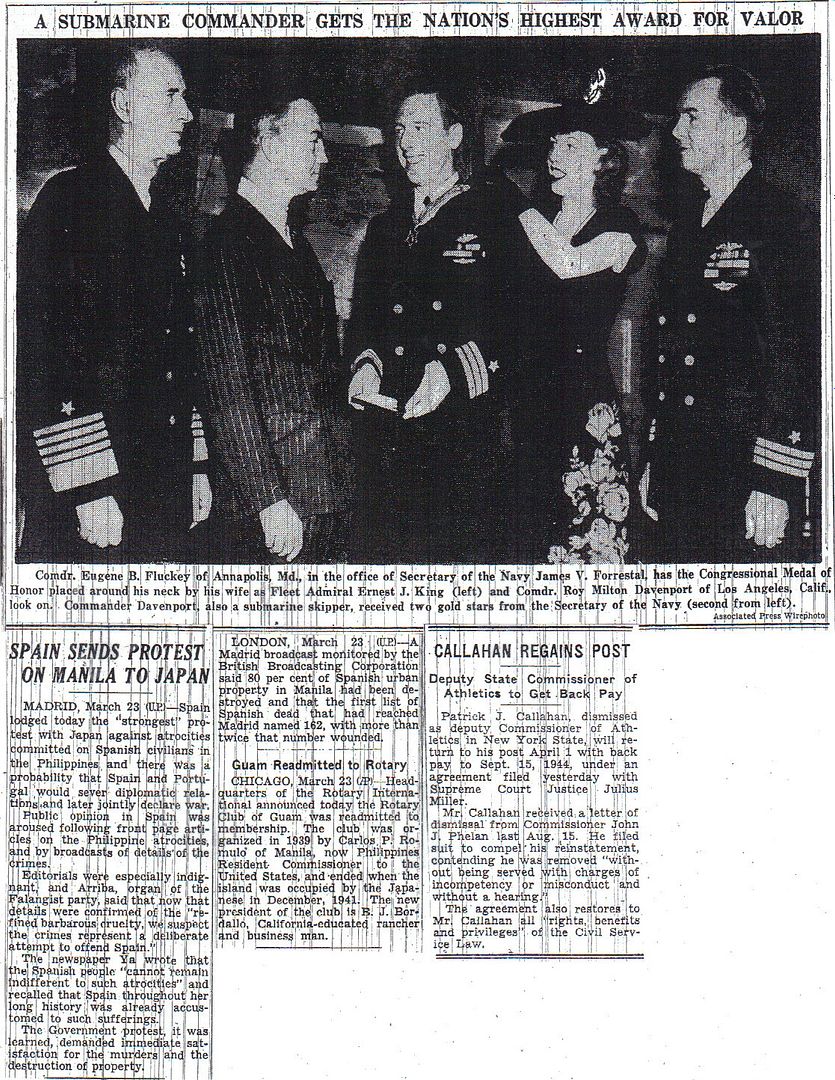
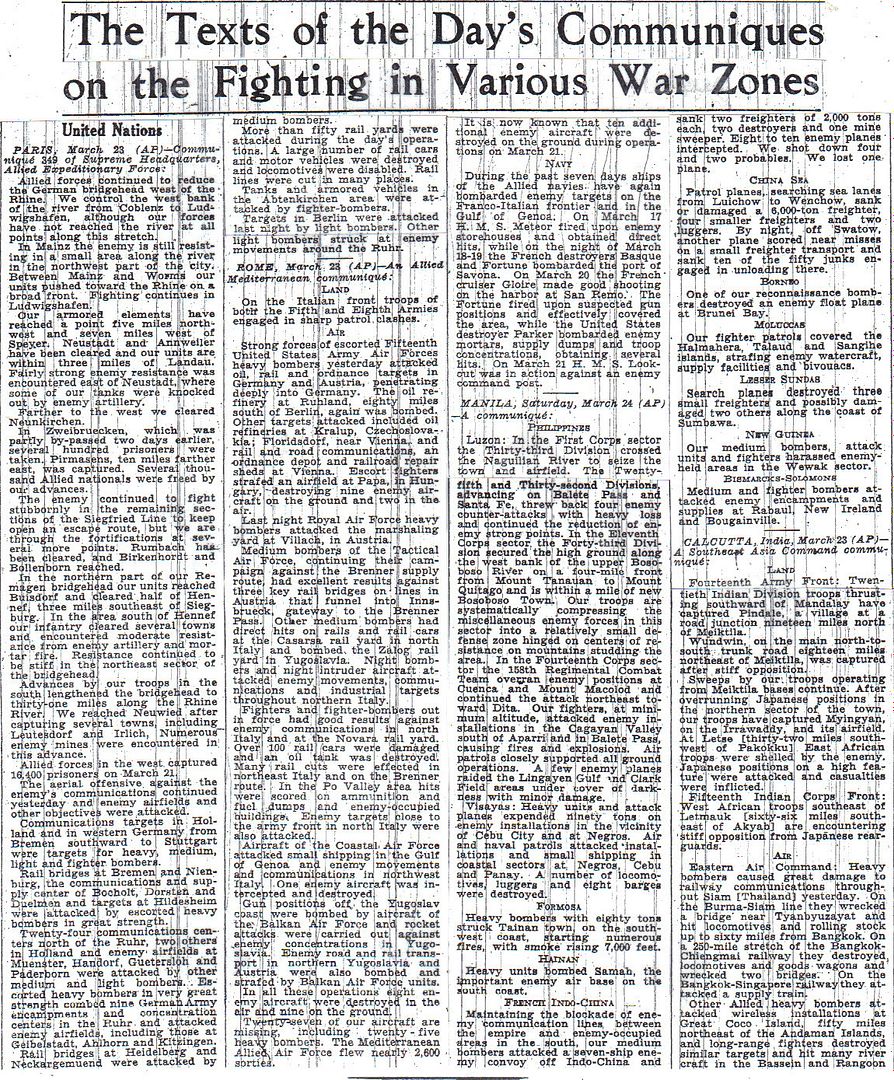
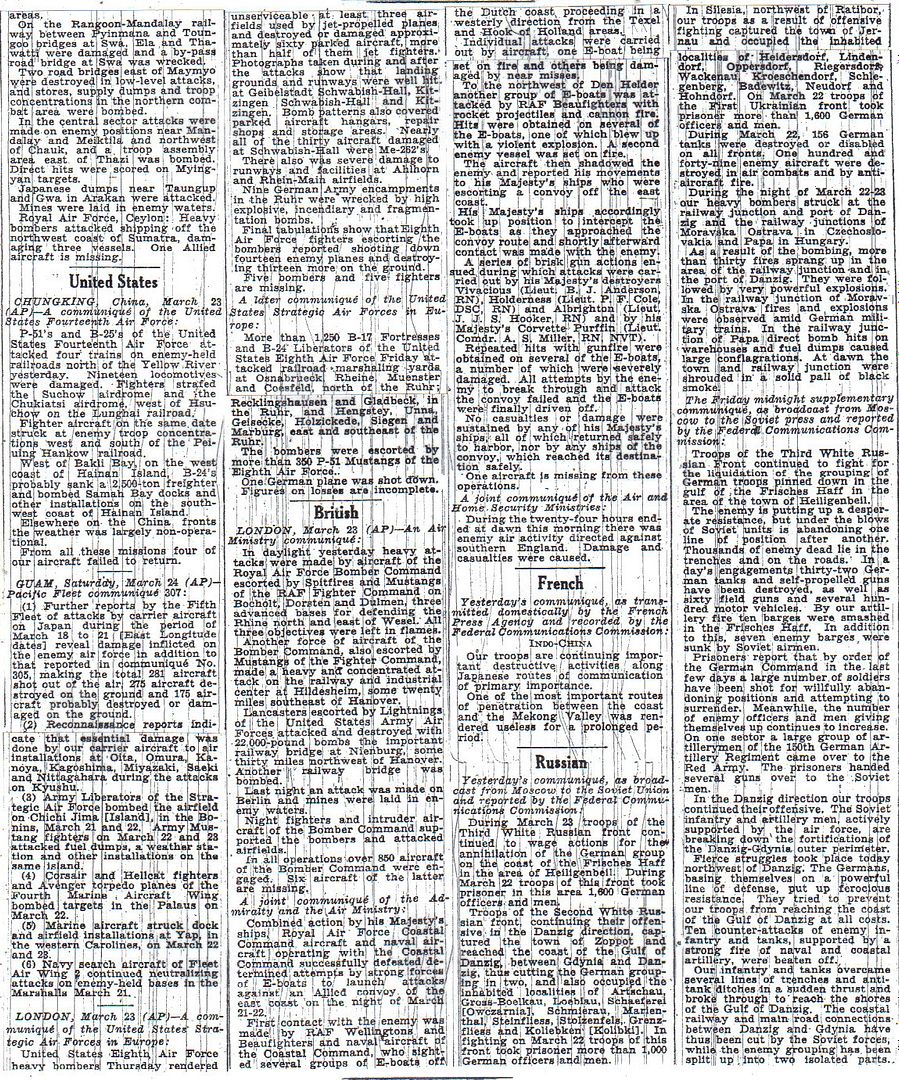
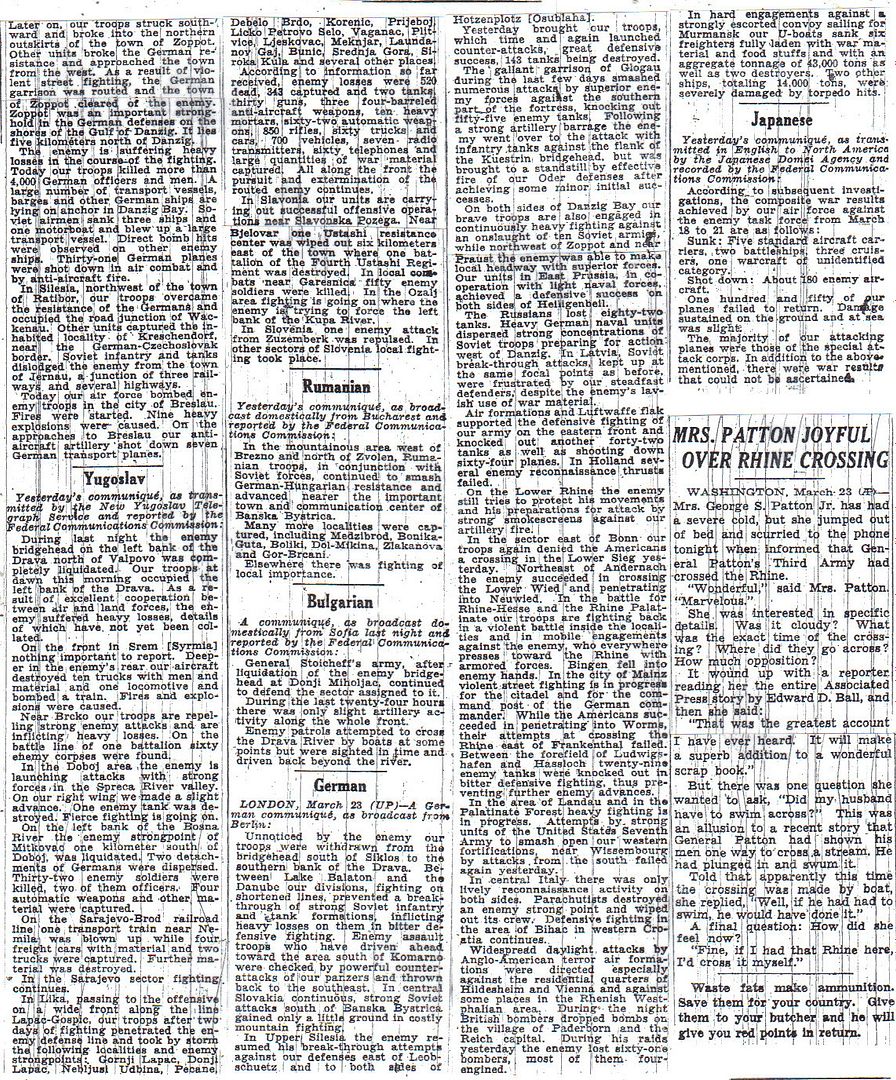
Official US Navy report of the damage to USS Franklin.
For conspicuous gallantry and intrepidity at the risk of his life above and beyond the call of duty as commanding officer of the U.S.S. Barb during her 11th war patrol along the east coast of China from 19 December 1944 to 15 February 1945. After sinking a large enemy ammunition ship and damaging additional tonnage during a running 2-hour night battle on 8 January, Comdr. Fluckey, in an exceptional feat of brilliant deduction and bold tracking on 25 January, located a concentration of more than 30 enemy ships in the lower reaches of Nankuan Chiang (Mamkwan Harbor). Fully aware that a safe retirement would necessitate an hour's run at full speed through the uncharted, mined, and rock-obstructed waters, he bravely ordered, "Battle station — torpedoes!" In a daring penetration of the heavy enemy screen, and riding in 5 fathoms [9 m] of water, he launched the Barb's last forward torpedoes at 3,000 yard [2.7 km] range. Quickly bringing the ship's stern tubes to bear, he turned loose 4 more torpedoes into the enemy, obtaining 8 direct hits on 6 of the main targets to explode a large ammunition ship and cause inestimable damage by the resultant flying shells and other pyrotechnics. Clearing the treacherous area at high speed, he brought the Barb through to safety and 4 days later sank a large Japanese freighter to complete a record of heroic combat achievement, reflecting the highest credit upon Comdr. Fluckey, his gallant officers and men, and the U.S. Naval Service.
According to Wiki he escaped with two Japanese frigates giving chase by revving his engines to 150% overload and setting a then world sub speed record of 23.5 knots.
Fluckey commanded the Barb, one of the most distinguished boats of WWII. Despite 12 war patrols and the land patrol in Japan, not one of his sailors received a Purple Heart, all hands always returned.
But, Brooke liked Monty and got him the Eighth Army command. After Alamein and North Africa he was such a national hero he was guaranteed a senior command.
As we have seen in these threads, after the Battle of the Bulge, Monty was so insubordinate and insulting to Bradley and Ike that Ike had Bedell Smith prepare a cable to Marshall and the Combined Chiefs telling them it was either Ike or Monty, but not both. He wanted Alexander to replace Monty as Commander of the Army Group. Monty's Chief of Staff, General Sir Francis de Guingand, got wind of it and personally pleaded with Ike to have a chance to fix the situation. He presented Monty with a frank letter of apology and assurance of future support and made him sign it, explaining that the Americans felt so strongly about this that not even Churchill could save him.
But Freddy couldn't improve his soldiering, as his ridiculous and embarrassing plan to cross the Rhine showed. He was still behind Bradley and Patton. Even the French got a temporary patrol across before Monty.
Was your father ever under Patton’s command?
My impression of Monty is that he was not a bad general, but he was a bad person.
Wow. What a determined and brave man. There have been so many movies made of submarines in WWII, there had to have been one about Comdr. Fluckey. Lucky Fluckey was no flukey.
Another screw up? I must have missed the details on that one. I knew he was in the northern section of the front doing something and Page 6 of today's Times says in the War News Summarized that Monty may be preparing "a new offensive", which made me wonder, "How long does it take for this guy to prepare for something?" What happened?
But Monty did not seem to have had a good grasp of how to fight a war of maneuver, at which Patton excelled. Monty certainly didn't "dash" up the Arnhem road in the Market Garden fight. He absolutely would have been the wrong commander for the one big push on Berlin plan he and Churchill kept pushing.
Monty also had a habit of assigning nasty jobs to non-UK forces under his command, such as clearing the Scheldt to the Canadians and as we are just now seeing, the Ruhr to the U.S. Ninth Army.
I scanned Wiki and Fluckey’s obit and could find no reference to any war movies based on his WWII service. Maybe the story of a guy who sank lots of ships but whose sailors were never even wounded was too boring for Hollywood. :-))
The French could only find one rubber boat at first, so that’s what they used. Quite a contrast with Monty, who need D-Day level resources.
Using the Dominion forces to do the nasty jobs was an Imperial tradition dating back to the First World War. And the Dominions were keenly aware of it. I suspect it was one of the reasons for the recent Canadian draft riots.
Alex Drier’s Weekly News Analysis – March 24, 1945 – Gordon Skene Sound Collection
http://pastdaily.com/wp-content/uploads/2015/03/News-for-March-24-1945.mp3
Soaring to New Heights: Spotlight on the Tuskegee Airmen
332nd Fighter Group: Narrative Mission Report No. 246 (March 24, 1945)
“Narrative Mission Report No. 246” for the mission of March 24, 1945. The mission, escorting the B-17s of the 5th Air Wing on an attack on the Daimler-Benz Tank Assembly Plant near Berlin was one of the longest missions flown by the Fifth Air Force during the war, and the 332nd Fighter Group (Tuskegee Airmen) would later be awarded the Distinguished Unit Citation for its service that day. By the date of the mission, the 332nd Fighter Group consisted of three squadrons, all of which participated. As with most mission reports, enemy fighters were seen but sometimes did not attack. The mission also includes sightings of, and attacks by, Me-262 jet fighters, which drew the attention of Army Air Forces intelligence officers. The report also recorded a tragedy that was all too common in the air war—one of the B-17s was hit by flak near Prague, Czechoslovakia, and spiraled to the ground. None of the pilots of the 332nd saw any parachutes come from the stricken bomber, which would indicate that all crewmembers probably died when their plane hit the ground.
The Americans don’t identify any German divisions south of 2nd Panzer and 553 Volksgrenadier. I suspect there’s nobody home. Nothing really identifiable at the division level left from the wreckage of the 1st and 7th Armies. And it’s unlikely the Germans will reassemble anything either.
When you think about it, the American army is only two or three weeks away from the Elbe.
We’ve focused quite a bit on our dislike of Montgomery, but enough of that. God bless the memory of all of the brave men who fought the battle of the Rhine, and the battles beyond the Rhine.
http://www.britisharmedforces.org/pages/nat_jim_corbett2.htm
Operation Varsity - The Rhine Jump - 24th March 1945.
With a collective shock to our system, we felt the Glider pilot release the nylon rope that had towed us all the way from England to a point a few thousand feet above the Rhine waterway in the heart of Nazi Germany. The engine noise from our tow-plane, a heavy Stirling Bomber, suddenly died away, and we were left with the noisy air rushing past the fuselage interspersed with the crack of intense ‘flak’ from the ground below. From our briefings, we knew that we had about four minutes flying time left…and all we could do was sit there and endure the rain of fire from the German gunners as they tried to shoot us out of the skies. It was 10a.m.on March 24th, 1945.
Everyone on board knew that World War II was drawing to its inevitable close, and we entered that hellish four minutes with our minds filled with just the one thought; would we survive this last, big battle and, in the fullness of time, be able to go home to our families and friends?
We banked left and right as the pilot tried to avoid the mass of fire-power streaming up from the ground. Corkscrewing all over the place, he struggled to control the heavy Horsa glider. His twenty-four passengers could only hold their breath and hang on to each other for dear life. My seat was alongside the exit-door, which I had opened as soon as we crossed the Rhine. I could see the ribbon of water-way stretched below me. On all sides, the sky was filled with towing-planes and their linked cargoes of tense fighting men; over 4,000 aircraft in total. There were Lancasters and Stirlings bringing in the 6th Airborne Division: Liberators and Dakotas with the 17th American Division. All, after releasing their load, were dodging and weaving to avoid the mayhem. Many were hit and falling in flames.
The 6th Airborne Division had landed in Normandy in the very early hours of D-Day. Mainly due to bad weather, the landings were not expected and therefore the element of surprise was a huge advantage.. But the Rhine Operation was different. Not only was this a daylight drop, but seven hours earlier, land-based troops had crossed the Rhine in assault craft and formed a three-mile bridgehead. Thus, the element of surprise was missing from our advantage; for the enemy had anticipated an airborne landing in support of the bridgehead and had plenty of time to bring up multiple air-defence guns from the Ruhr valley.
And what a welcome they gave us! I believe there were units who lost 50% casualties. The sky was black with ten thousand parachutes. The German ack-ack gunners couldn’t miss! They only had to point their guns skywards and press the trigger.
We called our Gliders, ‘flying coffins’. They were built mainly of plywood and had no protection from the accurate German guns. Sitting there with no parachutes, we felt like sitting ducks. One’s only hope lay in the skill of the Glider pilot, who we prayed would get us down in one piece…then we had a fighting chance.
Looking out the exit door, I saw that more Gliders had been hit and set on fire, giving the occupants no chance. As we continued to weave our way down through the crowded skies, I saw two Hamilcar Heavy Combat Gliders hit. Suddenly, a small half-track vehicle crashed through the front of the first Glider with two men hanging on the chains used to secure the load. In the other Glider, an anti-tank 6-pounder and its gunners made their exit in the same fashion. I shall always remember my whole being becoming suffused with terror. This was simply carnage; the like of which we had never experienced in all the battles across Europe from Normandy to the Rhine. The horrific scenes I was witnessing reminded me of an old film, with giant prehistoric birds-of-prey flying through gunfire and picking off humans on their way.
Then, at ever decreasing speed, we had just two more minutes of flying time left. Bullets were whipping through the fuselage like angry bees; I remember thinking that we could never survive this continuous onslaught. I closed my eyes and concentrated on the previous day’s briefing, our objective, and the job we had to do if we ever reached enemy territory.
We had dispersed to our departure airfields in Essex about a week before the battle. Here, we were given a basic plan of the operation, (code-named Varsity) by the Top Brass. The Commandos and 51st Highland Division were going in at 3a.m. to form the Bridgehead and we would land seven hours later, approximately eight miles ahead of the land-troops to complete the rout. To boast moral, I remember one Commander describing the operation as, ‘a piece of cake’ Nothing was said about air defences; perhaps they hoped it would be non-existent, or that it was all guarding German cities from bomber attacks. After basic briefing, we were given personal briefing as to our individual objectives from our own C.O.. This turned out to be the small country town of Hamminkeln, near Wesel. My company’s objective was the centre crossroads, which we were to hold until relieved by land troops. There was a paper-mâché model of the town showing most of the houses and a church with a tower overlooking the crossroads. We were then introduced to the two Glider Pilots who would take us in. As they informed us of their flight-plan, the phrase, “your life in their hands”, came to mind. I can still recall the gist of the conversation.
“Well”, they said, “We are going to try and get you in as close to your objective, the crossroads, as we can. Coming in from the southwest, we can hop over this wire fence, land in this potato field and run the Glider towards the gap between these two houses which are right on the crossroads” It all sounded so simple. We were re-assured by the scale model and the superb aerial photography. It not only showed the number of weapon-slits guarding various points, but also their depth. The photos even showed the height of each strand of the five-barbed wire fence that we were to “hop over”! When they asked for questions, I ventured to ask, “what if we lose our landing-gear in the ruts of the potato field. With no brakes, we would just slither towards the gap between the two houses completely out of control?”. I was thinking that this gap was only the width of a car. The Pilots replied with absolute confidence. If that happened, they said, they might lose the wings, but the fuselage would finish on the crossroads. “It’s all expendable”, they added, “we are not intending to fly it again”. Then someone else shouted, “Yes, but your passengers ain’t”, and we all laughed. The Glider pilots turned out to be first-rate, and we grew to have a lot of respect for them, especially when, on landing, they both grabbed a tommy-gun and jumped out of the pilot-seats to fight alongside.
Reveille was at 3a.m.and we tooled up with all our fighting gear: with crossed bandoliers of ammo and a grenade (suitably taped to avoid accidents in the aircraft) hanging from each lapel, Our weapons were loaded with full magazines and one ‘up the spout’. Just as dawn was breaking, we were ferried to the airfield. All the heavy bombers were lined up on one side of the runway and the gliders on the other with the coiled tow-ropes between them. Tension was high and hardly anyone spoke. The last-minute briefing was not re-assuring. Apparently, while the land-forces assault was going well and a bridgehead of some sort had been established, the unwelcome news was that some big guns had been brought up to stop the advance into the Fatherland and they were likely to be used to shell the Landing Zones. It was hoped to bring in Typhoon fighter-aircraft for close support. Most of the RAF personnel, including the WAFFS, got up to see us off. Lastly, the tow-plane pilot poked his head around the door and wished us luck, adding that he was glad he was not landing with us. A nice touch!
The take-off by RAF personnel was a model of quiet precision and organisation. Picture, if you can, 50 heavy bombers, one after another, pulling to the centre of the runway, followed by it’s glider. A quick word of confirmation between the two pilots and we soared into the dawning sky. There was one casualty and it happened to be one of our Company’s platoons. The tow-rope broke on take-off and the flight aborted. Unfortunately, the Glider couldn’t attempt a normal landing on the runway as it was being used by other aircraft taking off. Without much height, it drifted around to find a suitable spot and crash-landed on the edge of the airfield. There were no serious injuries and the platoon joined us later in Germany.
Back over the Rhine, we were now down to 500 feet and out of the trajectory of the ‘flak’ guns, though small-arms fire was still coming our way from the ground defences. From my position, I could look out the cockpit window and saw a small village, which must be Hamminkeln, straight ahead. Then, the brown earth of the ploughed fields came into sight. Before we knew it, the Pilot shouted, “Stand by” so, holding on to each other and lifting our feet off the deck, we braced ourselves for the crash-landing. There was a loud, harsh noise as we hit the ground and the landing gear came up through the floor. As we bounced and slithered along towards the houses ahead, the Glider was now virtually out of control. It seemed we would never stop in time, but as the houses took off our wings and brought us to a standstill, we realised that our Pilot had timed it magnificently. I had no time to marvel at this tremendous feat of flying. I was first out the door, to be met with a burst of German machine-gun fire. Fortunately, I had hit the ground, but the second man out, my best friend Cyril Eden, (who lived not far from me back in England), was shot through the thigh. I returned fire as best I could to cover the exit for the others. Then something happened which amazed me. I turned back towards the damaged glider to shout something or other, but found I could not utter a single word. Presumably, my vocal chords were paralysed with fear. I spent the next few minutes trying to swallow and get some saliva back into my mouth. Fortunately, this spasm only lasted a few minutes, and I soon recovered and crawled away to a safer place.
The long-range German guns and mortars had now found the range of the LZ and were beginning to saturate surrounding fields. I watched two of our Gliders attempt to land in our area. One tipped up on its nose and the other hit the ground with its starboard wing. They didn’t catch fire so, hopefully, most of them got out. I also saw a four-engine bomber on fire with engines screaming as it crashed beyond the village. Meanwhile, one of our Hamilcar Gliders, heavily laden, came in very low over the LZ. Desperately, I prayed that he would make it, not only for the lives of the men aboard, but also because I knew it would be carrying heavy equipment, which would have been useful to us at that moment. But he crashed straight into a railway signal-box. I was beginning to realise how lucky we had been to make a safe landing. The next thirty-minutes became even more murderous as small-arms fire and heavy artillery made our position untenable. I crawled further away from the LZ and was surprised to find a five-foot deep foxhole that I dived into with relief. I was not there long when I heard someone crawling towards me. Was it friend or foe? With my rifle between my knees, I got ready to blow any enemy’s head off. But then a great, black moon-face peered over the parapet. With a deep-southern draw, he said, “any room down there for me, boss?”. He was a parachutist from the 17th who had also landed on our Zone. Facing each other, with our knees drawn up, there was just room for the two of us and I marvelled at the situation. Two soldiers from different countries, meeting up in a foxhole and being shelled to pieces whilst we chatted about the war in general. We also exchanged cigarettes, I smoked his Chesterfield and he took my Players Navy Cut. It was pure heaven, as all around us was death and destruction. I expect 95% of all front-line soldiers smoked when in action: the nicotine drug being a small comfort. Dying later of lung-cancer, in a bed with white sheets, seemed a favourable option for us at the time. Suddenly, the barrage lifted, so we shook hands and left our sanctuary to rejoin our units…never to meet again. I certainly hope he made it back to the States.
The Battalion had taken a number of casualties, not only from shell fire, but from the church tower, where two or three snipers were picking off easy targets. As I was a sniper myself, I tried to use my telescopic sights and nullify this threat, but we were right underneath the tower and I could only see the very top of their helmets. So we remained pinned down, until our Colonel brought up a 6 pound-anti-tank gun and blew the tower to pieces. We then rushed the enemy who were occupying the nearby houses, and very soon captured the whole town. We took about 100 prisoners; mostly older men and some Hitler Youth boy soldiers. It was not exactly the cream of the SS, but they were fighting for their Fatherland and had put up a stern resistance. Once captured, they seem relieved that their war was over, whilst we had another six weeks of fighting before we met up with the Russians in the Baltic and, at last, called it a day.
But, for me, at least this Battle of the Rhine was over and, amazingly, it had only taken just over the hour since we landed, so I suppose the Generals would be claiming it a resounding success. But at what cost?
From my lowly position, I couldn’t help but wonder why the two Airborne Divisions didn’t land as dawn was breaking; long before the land-forces went in and advertised the attack. Because, in Germany, we landed on flat plains; there was no need to blast away at any concrete fortifications with bombers and heavy artillery, like we did at the Atlantic Wall in Normandy,. By this strategy, we may have effected complete surprise and got away with very few casualties. I suppose, at the back of his mind, Monty had the memory of Arnhem where it all went wrong for us. This final battle he certainly didn’t want to lose.
Speaking of Monty, I remember reading many years later a newspaper story about the Rhine operation. Apparently, Monty, for his Headquarters, took over a large chateau just a few kilometres from the assault point and invited Winston and all the American Generals. They sat down to enjoy a sumptuous champagne breakfast under the chandeliers. As 10 a.m. approached, they went out on the balcony to witness this great armada of planes flying over their heads.
I hope they were suitably impressed. I would gladly have exchanged places with any one of them!
J.N.Corbett.
12th Devons.
6th Air Landing Brigade.
6th Airborne Division.
Jim’s Medals: 1939/45 Star - War Medal - Defence Medal - France/Germany Star - Victory Medal - (Presented by Honfleur Town Council - Honfleur 50th Anniversary Liberation Medal plus five more heavy bronze medals - Freedom of Honfleur in 2001 in the shape of a large Silver Key mounted on purple plinth).
Copyright Text & Images: Jim Corbett
It’s amazing, isn’t it? The Germans have already lost the war of attrition.

FRANCE. Arras. March 23, 1945. American paratroopers jumping into Germany. Copyright Robert Capa.

GERMANY. Near Wesel. March 24th, 1945. American paratroopers landing in Germany. Copyright Robert Capa.

GERMANY. Near Wesel. March 24th, 1945. American paratroopers moments after landing in Germany. Copyright Robert Capa.

GERMANY. Wesel. March 24th, 1945. German farmers taking cover during fighting between German and American troops. Copyright Robert Capa.

GERMANY. Wesel. March 24th, 1945. American paratroopers shortly after dropping into Germany. An Allied glider lands in the background. Copyright Robert Capa.

GERMANY. Wesel. March 24th, 1945. Injured American paratroopers get treatment by members of the Army's medical corps. Copyright Robert Capa.

GERMANY. Wesel. March 24th, 1945. German soldiers captured by American paratroopers. Copyright Robert Capa.

GERMANY. Wesel. March 24th, 1945. American paratroopers escort captured German soldiers. Copyright Robert Capa.
Disclaimer: Opinions posted on Free Republic are those of the individual posters and do not necessarily represent the opinion of Free Republic or its management. All materials posted herein are protected by copyright law and the exemption for fair use of copyrighted works.